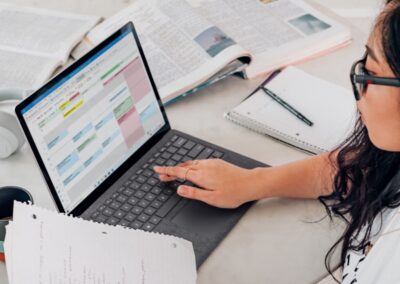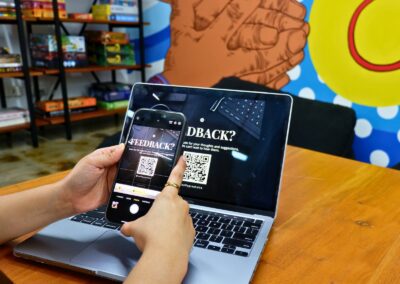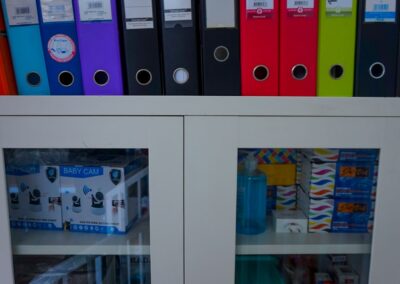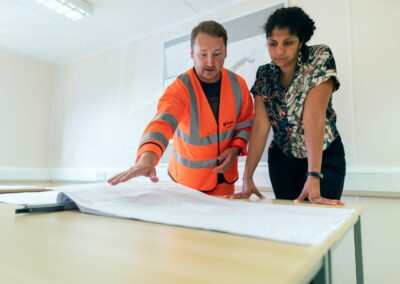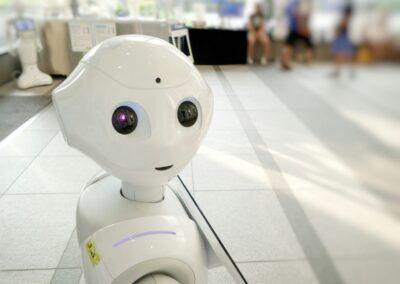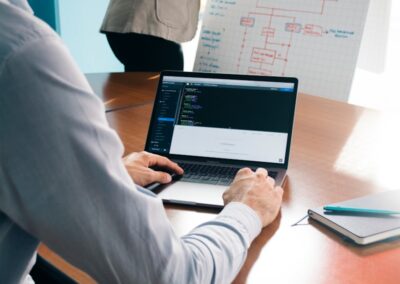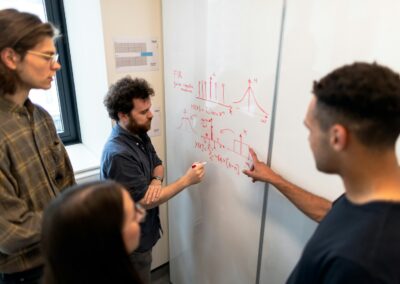Future Trends in Real-Time Assessment and Feedback: A New Era in Education
The Evolution of Real-Time Assessment in Education
The future trends in real-time assessment and feedback are poised to revolutionize the educational landscape, offering unprecedented opportunities for enhancing student learning and performance. In the UAE and Saudi Arabia, where education is a critical component of national development strategies, the integration of advanced technologies like Artificial Intelligence (AI) and machine learning is driving significant changes in how assessments are conducted.
Real-time assessment involves the continuous evaluation of student performance through digital platforms that provide immediate feedback. This approach contrasts sharply with traditional assessment methods, which often rely on periodic exams and delayed feedback. The advent of AI-powered tools enables educators to track student progress in real-time, identifying areas of difficulty and providing timely interventions. This instant feedback loop helps students correct mistakes, understand concepts more deeply, and stay motivated.
In Dubai and Riyadh, educational institutions are leveraging these technologies to create more dynamic and responsive learning environments. For example, AI-driven platforms can analyze a student’s interaction with educational content, identify patterns of misunderstanding, and suggest targeted resources to address specific learning gaps. This personalized approach ensures that students receive the support they need exactly when they need it, leading to improved educational outcomes and higher levels of student engagement.
Personalized Learning Through Real-Time Feedback
Personalized learning is one of the most significant benefits of real-time assessment and feedback. By tailoring educational experiences to the individual needs of each student, these technologies can enhance the effectiveness of teaching and learning. In the context of the UAE and Saudi Arabia, where educational systems are rapidly modernizing, personalized learning is becoming a cornerstone of educational reform.
Real-time feedback allows educators to create customized learning pathways for each student. For instance, adaptive learning platforms can adjust the difficulty of tasks based on real-time performance data, ensuring that students are neither bored by tasks that are too easy nor overwhelmed by challenges that are too difficult. This adaptive approach keeps students engaged and motivated, fostering a deeper understanding of the material.
Moreover, personalized learning facilitated by real-time feedback can address the diverse needs of students in a more inclusive manner. In regions like Riyadh and Dubai, where classrooms often comprise students from various cultural and linguistic backgrounds, personalized learning can help bridge gaps and provide equitable educational opportunities. By offering tailored support and resources, educators can ensure that all students, regardless of their background, have the chance to succeed.
Enhancing Teacher Effectiveness with Real-Time Data
The implementation of real-time assessment and feedback also holds significant potential for enhancing teacher effectiveness. Access to real-time data allows educators to make informed decisions about their instructional strategies, identify areas where students are struggling, and adjust their teaching methods accordingly. This data-driven approach can lead to more effective and efficient teaching practices.
In the UAE and Saudi Arabia, where there is a strong emphasis on educational excellence, leveraging real-time data can help teachers refine their approaches and achieve better outcomes. For example, teachers can use real-time analytics to identify common misconceptions and address them promptly in their lessons. This immediate intervention can prevent small misunderstandings from becoming significant learning obstacles.
Furthermore, real-time feedback systems can facilitate more meaningful interactions between teachers and students. By providing continuous insights into student performance, these systems enable teachers to offer targeted support and guidance, fostering a more supportive and engaging learning environment. In Dubai and Riyadh, where educational institutions are striving to create world-class learning experiences, the adoption of real-time assessment technologies can play a crucial role in achieving these goals.
Real-Time Assessment and Feedback: Preparing for the Future
The Role of AI and Machine Learning in Future Assessments
Artificial Intelligence and machine learning are at the forefront of the future trends in real-time assessment and feedback. These technologies enable the analysis of vast amounts of data, providing insights that were previously unattainable. In the UAE and Saudi Arabia, where there is a strong commitment to technological innovation, the integration of AI in education is driving significant advancements.
AI-powered assessment tools can analyze student data to identify patterns and trends, providing educators with actionable insights. For example, machine learning algorithms can predict which students are at risk of falling behind and suggest targeted interventions to help them catch up. This predictive capability allows educators to be proactive rather than reactive, addressing potential issues before they become significant problems.
Moreover, AI can facilitate the development of more sophisticated assessment methods. Traditional assessments often focus on rote memorization and basic skills, but AI can enable the assessment of higher-order thinking skills such as critical thinking, problem-solving, and creativity. In regions like Riyadh and Dubai, where there is a push towards developing 21st-century skills, AI-powered assessments can help ensure that students are prepared for the demands of the modern world.
Implementing Real-Time Feedback Systems: Best Practices
Successfully implementing real-time assessment and feedback systems requires careful planning and consideration. Educational institutions must adopt best practices to ensure that these technologies are integrated effectively and provide maximum benefits. In the UAE and Saudi Arabia, where there is a strong emphasis on educational innovation, adopting these best practices can lead to significant improvements in educational outcomes.
One best practice is to start with pilot programs that test real-time assessment tools in a few classrooms before scaling up to a broader implementation. This approach allows institutions to identify potential challenges, gather feedback from teachers and students, and refine their strategies. By starting small, institutions can ensure a smoother transition and avoid widespread disruptions.
Another important practice is to provide ongoing professional development for educators. Teachers need to be equipped with the skills and knowledge to effectively use real-time assessment tools. Training programs and workshops can help educators understand how to interpret real-time data, integrate feedback into their teaching, and use these technologies to enhance student learning. In regions like Dubai and Riyadh, where there is a focus on building teacher capacity, investing in professional development is crucial for the successful implementation of real-time assessment systems.
The Future of Education with Real-Time Feedback
The future of education is closely tied to the advancements in real-time assessment and feedback technologies. As these tools become more sophisticated and widely adopted, they have the potential to transform the educational landscape. In the UAE and Saudi Arabia, where educational reform is a key priority, the integration of real-time feedback systems can lead to more personalized, effective, and equitable learning experiences.
Real-time feedback systems will continue to evolve, incorporating new technologies and methodologies. For example, the integration of augmented reality (AR) and virtual reality (VR) can provide immersive assessment experiences that engage students in new and exciting ways. Additionally, the use of blockchain technology can ensure the security and transparency of assessment data, providing a reliable record of student performance.
In conclusion, the future trends in real-time assessment and feedback are set to shape the landscape of education in profound ways. By leveraging the power of AI, machine learning, and other advanced technologies, educational institutions in Dubai, Riyadh, and beyond can create more responsive and personalized learning environments. For business leaders and educators, embracing these trends presents an opportunity to enhance educational outcomes, improve operational efficiency, and drive business success in the digital age.
—
#RealTimeAssessment, #FeedbackInEducation, #FutureTrends, #AIinEducation, #UAE, #SaudiArabia, #Riyadh, #Dubai, #ModernTechnology, #BusinessSuccess, #LeadershipSkills, #ProjectManagement



